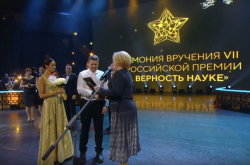What is science communication?
Andrey: Discussions on whether science communication is relevant or not are popular both in Europe and Russia. The problem is that it is very difficult to define this phenomenon and reckon it among only one field. Is science communication part of sociology of science or management, political sociology or economics of science? It is also impossible to detect who needs science communication more — society, business or the government.
Peter: There is a problem related to definitions and terms. In Europe, there are several meanings of science communication. It is very important to distinguish science communication and science journalism. Do we need them to sell science, disclose activities of research institutes, promote scientists or companies? I know that journalists don’t like to serve as promoters because their responsibility is to ask and investigate. They are not ready to repeat someone’s words. To define science communication and detect its functions, one has to take this difference into account.
Andrey: it is also important to keep in mind the models of science communications that were in previous times, in our case those that existed in the Soviet period. Back then, it was about popularizing particular fields and research projects like, for example, nuclear energy. One can also remember popularization of chemistry in 1960-s, when the government needed people to know and respect it. It was not about selling something, but about contributing to well-being of society — these initiatives were political as opposed to economic.

Andrey Kozhanov
Peter: the Western world had similar propaganda activities but they were capitalistic. It doesn’t matter what way science follow, anyway it redounds to the benefit of society. It is not typical for society to give back. According to specialists from European countries, the dialogue between science and society is necessary. Just imagine the resistance of scientists, corporations and universities to the communication. These days, it is a dangerous time to do that. If I had brought up this topic three years ago, I would have declared that society had to join the process of scientific development and participate in making decisions about the necessity of any kind of new technology. It is a sociological task for science communication. However, as of now, science-society interaction goes down, as people don’t trust experts. The more an expert works in any field, the less people rely on his opinion. Nowadays, it is very difficult to attract new people to any field because of mistrust. In previous times we asked "Can society trust science?"; now, the question is "Can science trust society?"
Does it mean that people don’t think rationally anymore and are not able to value the significance of science?
Peter: It doesn’t depend on rational thinking. I’d give the following example: there is androgen insensitivity syndrome — it means that a woman, for example, has both X and Y chromosomes. Her chromosome set proves that she is a man, but in fact, she is a woman. Women with this disease consider themselves "not entirely women." While in terms of medicine they are "not entirely men." It doesn’t mean that someone is wrong, they just used different methods and judged by various criteria. A physician knows what happens with their organisms from the biological point of view. These people, on the contrary, use their experience as base. These days, patients can be experts, but they are versed in some issues while physicians are good at different ones. And it’s most disturbing that now, people even doubt about who is the real expert.
Andrey: I’d like to add that the public idolizes experts. You trust them and depend on their opinion. At the same time, thanks to development of media, internet and mass education, including self-learning, common people are involved in science more than scientists can imagine. They have the vision of scientific issues, and those related to science, be it a journey to Mars, Large Hadron Collider, or global warming. Most people only have basic background but having studied, for instance, articles on global warming, they can give judgements like experts. Is it about science? It is rather popular science. Speaking of rational thinking, there are several approaches to this. Usually, people consider rational thinking as an ability to make decisions using common sense and intuition. It is not the same as rational thinking in terms of science, where experiments rule. There is a difference between explanations based on logic and reasons. The logical way is when A is followed by B, which is followed by C and so forth. The explanation based on reasons is grounded on experiments — it may seem unexpected and irrational to those who use philistine rational thinking. For instance, science journalists can trust scientists, rely on their opinion or think logically and look for other ways to explain phenomena that the public considers just rational.

The course "Theory and Practice of Science Communication"
Peter: Society is a smart social institution. It has rationality, but this rationality is a social one. People know how to get information about activities of scientists and companies. Furthermore, they always ask the necessary questions, like "Why do they share this here and now?", "Should I trust them?", "Is it possible that it was reported for somebody’s benefit?" That is why people don’t rely on experts' opinion sometimes. While discussing some important topic, scientists show people results of research, and give the full information. But people may ask who’s paid for that. It is very important to keep balance between different interests- scientists want to research and journalists want to investigate. It is not about sharing the complete information with society, but about a trust-based relationship in the field of science communication.
Andrey: I think that researchers need science communication more that society. People already have everything they need like knowledge and opinions, and it doesn’t matter for them whether those are relevant or not. They only care about its usefulness. It is important for scientists to understand that they are not the only source of ideas and opinions. They are not even monopolists of sources from which people can get scientific knowledge. To answer the questions they have, people can turn to alternative sources like religion, myths or media content that is not related to science, for instance, Wikipedia. It is very challenging for scientific institutions to be appreciated by society. Anyway, we support science by paying taxes or when our children apply to universities. Now, everybody can choose a concept to follow. In these terms, experts are very important. For example, when making a decision the European Union takes into account not only scientists' point of view, but also the view of social groups or communities. That is why science communication is about promoting science and also understanding its social meaning.
Peter: to declare that global warming is bad, scientists need the trust and appreciation of society. People can listen to a different opinion and come to the point that it is wrong. At the same time, scientific views don’t have to be the ultimate truth. Science communication has to control this.
Andrey: I’d like to add that despite the fact that we have to educate society as much as possible, we must analyze the statistics. Otherwise it will give the reverse effect. Promoting scientific knowledge among non-academic or very traditional communities may lead to pseudo-scientific statements, or parascience, for example, quasi medicine. You have to know for sure what exactly you are promoting. Ask yourself whether you just transfer the knowledge or make people appreciate and trust it. It means that people will, at least, make their children receive higher education and will understand why it is necessary. We need a new type of social contract between people and science. For example, you trust surgeons, but you are not versed in surgery at all. The same level of trust has to be with science.
The course "Theory and Practice of Science Communication" was organized by ITMO’s Center for Science Communication and "Communication Laboratory" of Russian Venture Company and supported by GS Group.




